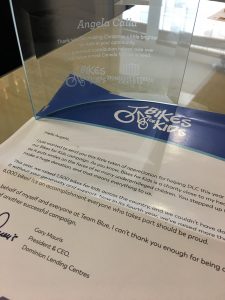Some of the last round of changes from the government regarding qualifying for a mortgage were that if you have a balance on your unsecured line of credit, then to qualify for mortgage the lenders require that we use a 3% payment of the balance of the line of credit.
Simple math is, if you owe $10,000 we have to use $300 as your monthly payment regardless of what the bank requires as a minimum. Given that the banks hand out lines of credit on a regular basis it is not uncommon for us to see $50,000 lines of credit with balances in the $40,000 range. That amount then means we have to use $1,200 a month as a payment even though the bank may require considerably less.
So what if it is a secured line of credit? Again we have clients telling us that they don’t have a mortgage only to realize they do have a Home Equity Line of Credit (HELOC). A home equity line of credit by all definition is a loan secured by property, the actual definition of a mortgage.
Again, it’s something the bank will require little more than interest payment on because it is secured. The calculation here can also upset the calculation for your next mortgage, as what is required by many lenders is to take the balance of the HELOC. Let’s say the balance is $200,000 and you convert it to a mortgage at the bench mark rate, which today is 5.34% with a 25-year amortization. That without any fees today is equal to $1202.22 per month, so what in the client’s mind may be a $400 or $500 dollar interest payment for the purpose of qualifying will be almost three times higher.
This one change to supposedly safe guard the Canadian consumer has lately been the thing we have seen stop more mortgages than just about anything else. If you have any question, contact a Dominion Lending Centres mortgage professional for answers.
Len Lane
Angela Calla, Mortgage Expert, AMP of the Year in 2009 has been helping British Columbian families save money with the best mortgage strategy for over a decade from her Port Coquitlam office location. She is a regular contributor to national and regional media outlets and long-time host of The Mortgage Show on CKNW Saturdays at 7pm, and sits on many advisory boards for mortgage lenders and insures.



